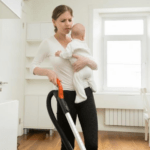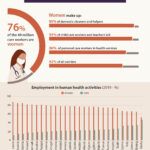
According to a recent report by the Joint Research Centre, women doing paid work from home are more likely than men to be caring for children or other family members during working hours. As a result, women do fewer hours of uninterrupted paid work than men.
Offering flexible working solutions could improve female employees’ work–life balance, but it could also result in offices becoming male dominated. A workplace with a significant gender imbalance can negatively impact the social dynamics of team interactions. It could also affect who gets what work and whose voice is ‘heard’ – employees who spend more time in the office could be treated more favourably by their managers than those working from home.
As more mixed working models emerge, businesses need to take proactive steps to manage this. Below we have prepared a few tips that employers can follow to build better gender balance at work.
Flexible working is for everyone
Let your employees know that flexible working is for everyone, regardless of gender, age or caring responsibilities. A clear policy on your company’s flexible working arrangements should help to reduce inequalities.
Senior employees can serve as an example
There is still a common misconception that work carried out in the office is more valuable than working from home. Let your employees see that even the most important roles can be undertaken flexibly and encourage your senior employees to work from home.
Gauge your employees’ preferences
Many companies survey their employees to accommodate individual preferences and circumstances. This is a good opportunity to monitor the gender balance of those who wish to come back to the office.
Train your managers
For many leaders, managing teams of people based in different locations is still something new and challenging. Make sure your managers have the necessary skills and tools to manage teams in a mixed model of working.
Keep communication channels open
Maintaining consistent communication with all employees, regardless of their location, is essential. Make sure that those who have chosen to work from home are treated as a core part of the team and are kept informed about all developments in the company.
Stay flexible
It is still difficult to predict how the continuing COVID-19 pandemic will affect us in the future, so it is likely that your employees’ needs will change. Monitor these changes with periodic surveys and make sure your company’s policies are in line with its diversity and inclusion goals






Leave a Reply